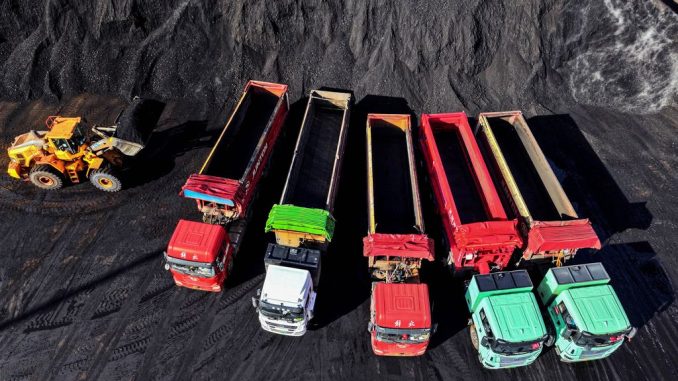
Still too much production oil, gas and coal to limit warming earth
To limit global warming to 1.5 degrees, much less fossil fuels must be produced than the plan is. Production must be drastically reduced for this, but countries do the opposite. The production is no less than 120 percent higher than the maximum level at which that goal can still be achieved.
Researchers from the Stockholm Environment Institute, IISD and Climate Analytics draw that conclusion almost ten years after closing the Paris climate treaty in a new report on the ‘production gap’. That is the difference between the (low) maximum production that countries should actually have if they are serious about their climate ambitions and the (high) planned production that they actually have.
It is not the first time that it is determined that the planned fossil production is many times too high. Two years ago, production was 110 percent higher than possible if you do not want to exceed the 1.5 degree warming. The fact that 120 percent are now reported, the researchers explain as a growing gap between the climate ambitions that countries express and the steps that they then actually take.
“In order to keep the 1.5-degree goal in sight, the world needs a rapid decrease in the number of investments in coal, oil and gas,” says co-head author Emily Ghosh of the Stockholm Environment Institute in the US. “Those resources should go to an energy transition that focuses on equality and justice.”
With the combustion of fossil fuels, for example coal and oil, the greenhouse gas CO2 is released. That stays in the atmosphere for many thousands of years and holds heat from the sun. Because humans burn fossil fuels on an increasingly large scale since about a century and a half, much more CO2 has ended up in the atmosphere than without that human influence. This increases warming.
“The atmosphere is a kind of bathtub and is full of CO2,” explains climate scientist Detlef van Vuuren (PBL/Utrecht University). “The longer you leave the tap open, the faster the bathtub is full. When you postpone the closing of the tap, you not only lose time to go quietly to a new energy system, but it is even that you have less ’emission space’.
What about CO2 and global warming again?
At the conclusion of the Paris Agreement (2015), countries agreed to limit global warming to well below 2 degrees Celsius, and preferably to 1.5 degrees. The researchers behind this latest report now warn that the planned production of fossil fuels that undermine commitments.
According to the researchers, a maximum warming of 2 degrees is also out of sight with the current plans of the twenty largest fossil fuels -producing countries: the planned production of up to 2030 is still 77 percent too high.
Way too much coal
The deepest gap between climate ambitions and planned production see the researchers in the production of coal. Coal production does shrink much faster than the production of other fuels, but the level is still about 500 percent too high to keep the 1.5 degree warming in sight.
For the production of oil, the gap is considerably smaller, but still substantial: 33 percent. There is also a lot of space between the ambitions and reality for gas. That production is 91 percent too high, although too high gas production is partly explained because gas is also used as a ‘transition brand’ due to its lower CO2 emissions.
“There are also paths conceivable where you continue to use gas for longer, possibly by catching the emissions and stop them underground,” says Van Vuuren. “So for gas it is a bit more difficult to say exactly which path is in line with Paris. But also for that you just want to get rid of it in the long term.”
The researchers compared the 20 largest fossil fuels -producing countries. The Netherlands also produces fossil, but falls outside of the 20:
The report on ‘production gap’ comes when industrial and energy policy is a big theme worldwide, much more than in 2015 when the Paris Agreement was signed. More use of fossil fuels can benefit the energy independence of a country, and countries attach much more to it than at the time.
Climate scientist Van Vuuren also sees that, but argues that the use of renewable energy that does just as well. “It is precisely because of the fact that you have to import those fossil fuels, you therefore further put your energy breach in order when you start from fossil.”
Share article:

Be the first to comment